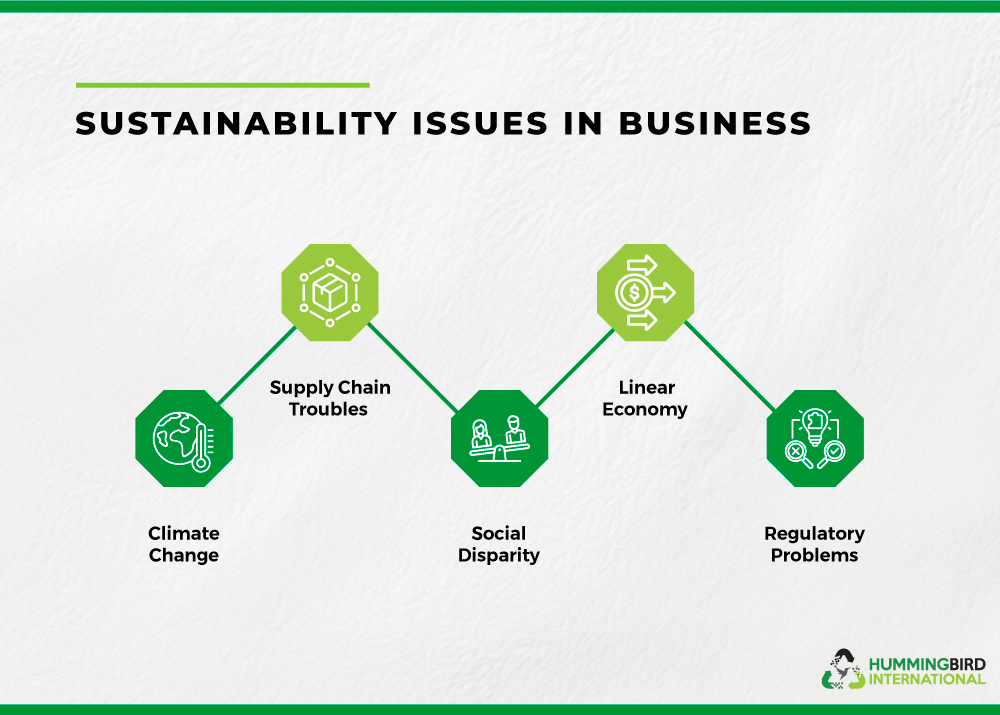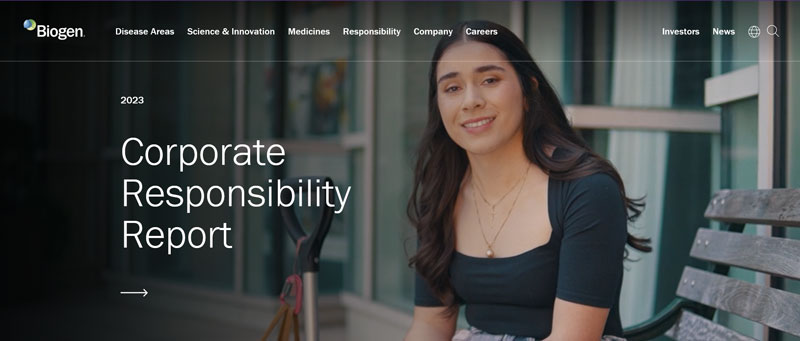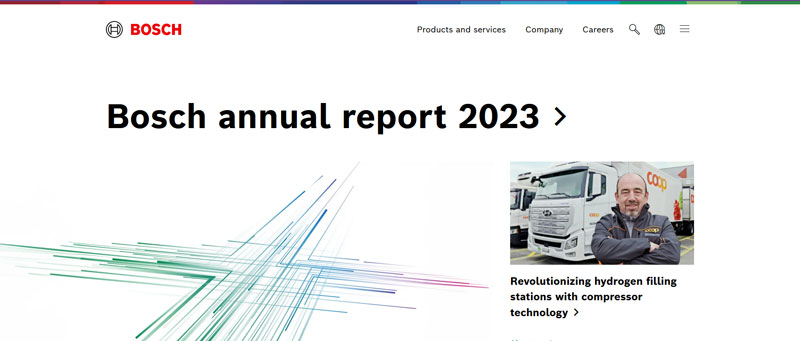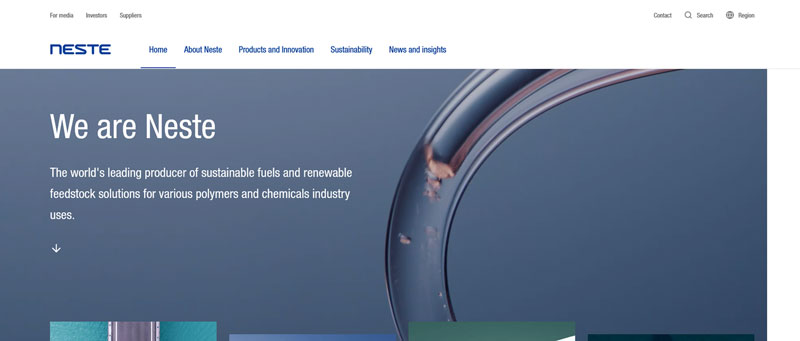Greenwashing to Genuine Impact: The Evolution of Sustainability in Business

Photo Credit: Freepik.com/atlascompany
In today’s modern day and age, sustainability is much more than a thought or idea. More and more people are gaining awareness and are much in favor of its growth. From reusable utensils to sustainability practices in businesses, we are working to encourage more daily sustainability.
However, it was not always like this. In history, very few people knew about the concept of sustainability. Businesses use it mostly to promote longevity in their products or services. Although it is a decade-old concept, people only started getting aware of its impact and benefits after the growth and development in the industrial sector. Businesses, corporations, and even small companies started encouraging efficient resource allocation.
This is only part of it, and today, we will learn the whole history of it and how it grew from a few mere practices to a worldwide revolution. Before that, you must know what sustainability is.
What is Sustainability in Business?
Sustainability refers to the practices, strategies, and ideas to reduce negative environmental and social effects that happen due to business operations. Environmental, Social, and Governance or ESG metrics govern sustainability practices for environmental sustainability in businesses.
Due to the increase in businesses, industries, and other such infrastructure that affect the earth in any way, climate change issues are also rising. As a result, the earth is getting weaker, and businesses are facing continuous pressure and ways to practice sustainability if they have not already.
History of Sustainability in Business (Greenwashing to Genuine Impact)
- Sustainability has been a known concept since the early ancient Egyptian times. People worked to maintain the balance between the environment and overall growth. It provided numerous benefits, which made it stick with people and societies.
- In the 1700s, crop rotation in agricultural advancement became heavily popular. It helped maintain soil fertility and increase food security. As a result, it improved crop yields, but nobody knew the reasons behind these amazing results until now. Now, we know that crop rotation promotes natural minerals and nutrients, which balances out agriculture and the environment – or so we call somewhat sustainability.
- The same concept remained in practice by everyone, and drastic changes happened in the 1950s and 1960s. During these years, the environmental impact of humans became known to the public. It was then that the groundwork for modern-age sustainability was laid. Today’s natural resource use, conservation of material, and efficiency in land and resource use are the result of these changes.
- Moreover, as environmental sustainability started popularizing, celebrities and known figures started awakening the masses. More and more people talked about the damages of not practicing sustainability.
- Moving on, the Diversity, Equity, and Inclusion, or DEI, which arose in the Civil Rights Movement, helped promote sustainability. It promoted both environmental and social sustainability. As a result of this, people looked for more eco-friendly opportunities and diversity for a better social environment where everyone can live, learn, and grow.
- Soon after that, in the 1970s, the world saw the emergence of sustainable development. The Human Environment topic in The United Nations conference was the main force behind it. It made a big leap towards global sustainability, which then started gaining more popularity, strength, and growth.
- Later in the 1980s, a report called Our Common Future was published. It highlighted sustainable development to satisfy current needs and preserve the environment for future generations to come.
- During the same 1980s, businesses started adopting the concept of Corporate Social Responsibility or CSR. It followed ethical standards and addressed the impacts of business operations. More and more businesses practiced CSR and aligned their values and strategies to nurture social and environmental stability. As a result, it drove more customer loyalty and helped businesses gain growth.
- Fast forward to the 1990s, the modern age terms and strategies regarding sustainability started surfacing. Energy Star by the US EPA program came into existence. It promoted energy efficiency in products or services to save energy and follow sustainability practices.
- In 1993, the US Green Building Council (USGBC) aided the green building movement. It excelled at sustainable building practices and became the first to promote Leadership in Energy and Environmental Design or LEED. LEED continues to help the real estate sector follow more and better sustainability practices and promote sustainable building design and construction. In the same sequence, the Global Reporting Initiative or GRI came into being and facilitated ESG reporting. It helped businesses practice economic, environmental, and social sustainability for increased performance.
- At the start of the 21st century, the world saw a massive increase in policies regarding sustainability. United Nations Global Compact, or UNGC, promoted corporate sustainability and committed business leaders to establishing sustainable work policies. Today, UNGC practices are upheld by more than 16000 companies. Simultaneously, the CDP and CDSB, or Climate Disclosure Standards Board, rose to support the growth of corporate sustainability commitments.
- In the 2010s, the idea of sustainability matured into a vital part of corporate and social culture. This ushered in the promotion of strong frameworks and practices boosting sustainability across all industries, businesses, and sectors. The SASB, or Sustainability Accounting Standards Board, came into existence, which highlighted the importance of sustainability and optimized it for business relevance. Other important policies and strategies, including the United Nations Sustainable Development Goals (UNSDGs), Institutional Shareholder Services (ISS), International Integrated Reporting Council (IIRC), and Climate-related Financial Disclosures (TCFD), further promoted sustainability and its growth across the world.
The Greenwashing Concept
During each era, many businesses, corporations, and people adopted the Greenwashing technique to deceive sustainability policies. Greenwashing is a deceitful and unethical behavior that lies to investors and customers into thinking that they are using sustainable practices when they are not doing, or doing less than needed.
For example, a plastic packaging container for a curtain indicates that it is recyclable without being clear as to whether the curtain material or the actual plastic packaging is recyclable. It is to mislead authorities and should not be followed.
It can cause damage not only to society but also to the company and its employees.
Why is Sustainability Important In Business?
Especially after the pandemic, many companies rethought their operations and adopted more sustainability practices to promote growth and recycling. Sustainability in businesses has become extremely important in more ways than one.
Four of the most important benefits are described as follows:
1. Promotes Economic Sustainability
Sustainable practices help a company grow and develop at a much faster pace. It promotes healthier advancements with guaranteed safety. It fulfills the needs of people and their living standards while avoiding trouble for future generations.
2. Promotes Social Sustainability
Sustainable practices guarantee social and economic sustainability, which ensures social justice and human development are in complete balance. It takes care of public health, nutrition requirements, and education needs. Simultaneously, it fights back against hunger and poverty.
3. Promotes Environmental Sustainability
As natural resource reserves are decreasing significantly, companies are moving towards environmental sustainability practices to preserve the environment. It encourages robust measures and critical strategies that help build environmental stability and improve the quality of life for every living being.
4. Helps Boost Competitive Advantage
Businesses can use sustainability practices to improve their brands’ reputation and build trust among consumers, investors, and partners. It shows the high concern of the company towards the preservation of resources and better sustainability. It will attract more customers and can put the business in advantage.
Issues Faced by Businesses
Establishing sustainability practices and ensuring their maximum impact overall is not easy for businesses, especially large corporations. However, it is essential to do as well. Sustainability is now not just a concept but a critical mandate for every business.
Businesses on the road to practice sustainability face many challenges. A few of the sustainability issues in businesses are as follows:

- Climate Change: Preserving the climate and negating negative changes is the most significant challenge. Businesses must reduce carbon footprints and promote the use of renewable energy and sustainable production processes. It will require creative thinking to develop robust solutions and practice sustainability throughout the organization.
- Supply Chain Troubles: Promoting and implementing sustainability across the complete supply chain is not easy. Businesses must ensure responsible sourcing, fair labor policies, and maximum transparency. It is mandatory for internal systems as well as for suppliers and partners.
- Social Disparity: In order to build a sustainable environment, businesses must focus on promoting social responsibility and inclusivity among employees. It is a general practice that addresses diversity, fair wages, and employee safety.
- Linear Economy: The linear economy is another big challenge in the world moving towards sustainability. The circular economy is the way to go from now onwards for businesses. It emphasizes waste reduction, promotes restructuring traditional models, and recycling and longevity for products and services.
- Regulatory Problems: The sustainability regulations are constantly evolving which makes it a challenge for businesses to uphold them. For this, every business must stay up to date with the changing legal requirements associated with ESG or Environmental, Social, and Governance factors.
Sustainability in Business Examples
Sustainability promotes healthy environmental and social change which reduces emissions and waste. Here is a list of businesses upholding sustainability in their work.
1. Biogen

Biogen addresses the medical needs of patients suffering from neurological and hematological diseases through different methods such as CRISPR & Gene Editing. It has reduced emissions from its electricity use entirely and is an active member in carbon offset.
2. BMW

BMW promotes sustainability in their vehicles by actively promoting the use of more hybrid and electric cars. Also, it ensures the use of materials sourced from the environment and is working towards reducing CO2 emissions.
3. Bosch

Bosch is actively working to expand its system with more renewable energy and sustainable water use in the production processes. It has been updating its factories and plants with the same ideology to promote more energy-efficient materials and machines.
4. Estee Lauder

The cosmetics company Estee Lauder upholds social impact and sustainability across all direct operations. It does so by utilizing solar panels and wind turbines to minimize waste. It actively ensures that every office is moving in a green direction.
5. IBM

IBM has been an active member of the sustainability movement since the 1960s. It is focusing hard on promoting energy efficiency and sustainable community development. It is aiming to reach zero greenhouse gas emissions by the year 2030.
6. Ikea

Ikea is also aiming to ensure complete sustainability by 2030. Ikea’s sustainability practices show the use of certified or recyclable wood and is committed to promoting recyclable material and renewable energy consumption.
7. Intel

Intel has actively worked on multiple sustainability practices. It upholds water restoration projects and promotes green energy sources for development. Intel has heavily reduced its landfill waste and is aiming to achieve maximum sustainability in the coming years as a part of Intel’s Corporate Social Responsibility.
8. Lego

Although Legos are made out of plastic, the Lego company ensures the use of renewable energy. It is aiming to make most of its products, primarily Legos, entirely recyclable. It focuses on implementing sustainability practices and educating the masses about it.
9. Neste

Neste sells oil out of Finland. It is investing significantly in research of biofuels and developing the sustainable aspects of the company. Its sustainability report shows its work in people and climate safety and promotes sustainability across all sectors.
10. Panasonic

Panasonic is another major company working hard to implement more sustainable practices. It reduces emissions and promotes the use of renewable energy. By 2050, Panasonic aims to reach net zero emissions.
Key Takeaways
Now you must be clear about what is environmental sustainability in businesses.
Over the years, sustainability has grown from a mere word to an essential practice for genuine impact. It is a concept with many things attached that may seem challenging but is actually quite rewarding in the long run.
The last thing is that businesses, customers, investors, and partners must work together to ensure maximum sustainability for a better future.
Embed in your site:
<a href="https://hummingbirdinternational.net/evolution-of-sustainability-in-business/"><img src="https://hummingbirdinternational.net/wp-content/uploads/2024/05/History-of-Sustainability-in-Business.jpg" alt="[INFOGRAPHIC] Greenwashing to Genuine Impact: The Evolution of Sustainability in Business" title="[INFOGRAPHIC] Greenwashing to Genuine Impact: The Evolution of Sustainability in Business"></a><br />By: <a href="https://hummingbirdinternational.net/">Hummingbirdinternational.net</a>
About The Author Kelly Sampson
Kelly Sampson is a writer, blogger, and environmental enthusiast. She has strong opinions about climate change, the dogs vs. cats debate, and Oxford commas. She has lent Hummingbird International her engaging and spirited voice and turned our blog into a great place to find valuable information about e-waste, e-waste recycling, and the ITAD industry. Explore our blog to read more of her work.







